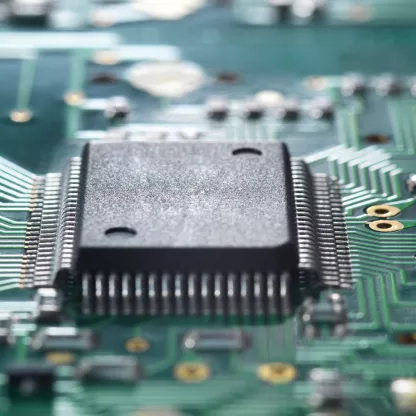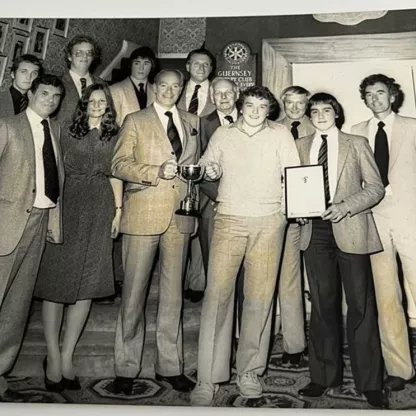AI, like all technologies, is neither good nor evil. It’s a tool with the potential for both great benefit and great harm. Whether the good outweighs the bad will depend on how people use it.

The benefit or harm of AI is in its use
The recent breakthroughs in large language model AI have sparked feverish debate about whether it will turn into a Skynet-type horror or a golden period of humanity. It’s unlikely to be either. Rather, AI’s effect will fall somewhere between, depending on how it’s used by people, businesses and governments.
AI will become just another digital tool, fused to how we live and work. Like the internet, mobile phones and tailor-made Spotify playlists, it will be remarkable at first and then become part of the furniture. Like every other epoch-defining invention, it will strip away drudgery from our lives. We used to travel to libraries and comb shelves for information, now the answers are at our fingertips. We used to go to the video store to get the latest films only to find all the copies were already rented, now everyone can watch them simultaneously with a click of a button.
Our great-great-grandparents used to walk or take horses to get places, our grandparents made the most of cars, now we can drive or pick up an e-scooter. In the not-too-distant future, AI may do the driving for us, creating more efficient transport networks.
Harder, better, faster, stronger
AI is shaping up to have the power to remove a tremendous amount of admin and grunt work from our lives. That’s really exciting! The amount of work and joy we can create today in the same number of hours in our days is so, so much more than in previous generations. The world can sometimes seem fast-paced and mile-a-minute, but that’s because of the cumulative advances of all the technologies society can take advantage of. AI could supercharge this further, improving our quality of life and making many tasks more measurable and efficient – in effect, leaving us all with yet more time to do more things that bring us money or joy.
For those who focus on the sustainability of investments – ensuring that they’re going to leave the world and people in it better than they were yesterday – AI will them very busy. It’s already being used by many companies we invest in.
Alongside OpenAI, Microsoft is developing ChatGPT, the large language model automated researcher-come-personal assistant that is revolutionising how people interact with the internet, learn skills and do an all manner of knowledge jobs. Logistics and warehousing tools supplier Zebra Technologies uses AI to soup up analytics software for its clients, making it quicker, cheaper and cleaner to get goods from A to B. Farm machinery manufacturer Deere is aggregating crop results, weather patterns and moisture levels, alongside fertiliser data, for AI and machine learning to give farmers suggestions on how to improve yields and soil health. It has also produced an autonomous tractor, after 20 years of research and development. This should mean fewer tractors are required, working harder and with more unerring precision.
However, there will be some who bend AI to nefarious uses. Expect to see lots more ‘deepfake’ media in coming elections. To be fair, the deepfakes are here already. Meanwhile, armies of AI bots would be much more effective at defrauding people. A hacker would be able to extend their reach infinitely by building AI programs that seek to crack security and infiltrate computer systems without sleep. You don’t have to be a crook to cause harm, either. AI is built by humans, so any biases inputted at inception could unfairly treat millions of people.
The internet made it much easier for scammers to find marks, even as it made it easier for everyone to find and collect information. So it will be with AI. In this environment, companies must be red hot on data privacy and security. If they fail, fines and grievous wounds to their reputation will follow.
Cost-benefit analysis
These AI products and services should help small businesses grow by making it easier for them do more with less help. It should create new, better jobs as well, even if there could be quite a shift coming for people across many professions.
AI is reaching into tasks that today are reasonable jobs for a whole lot of people. Even jobs that people have spent a lot of time studying for, like doctors, engineers and accountants. Often people’s identities are tightly wrapped up in their profession, which makes change hard. It will be vitally important for company managers and governments to treat people well, offering retraining and paths to other, productive work. Otherwise, people will leave the workforce for good, to no one’s benefit.
We must also ensure that AI is well managed. Given the free access offered by developers trying to fine-tune their programs, you could be forgiven for thinking this magic was free. It’s not. It’s powered by an extraordinary amount of power (and water for cooling), which affects the environment and costs real money. The results of its use must make sense once all these costs – social, environmental and financial – are weighed up.
Tune in to The Sharpe End — a multi-asset investing podcast from Rathbones. You can listen here or wherever you get your podcasts. New episodes monthly.








